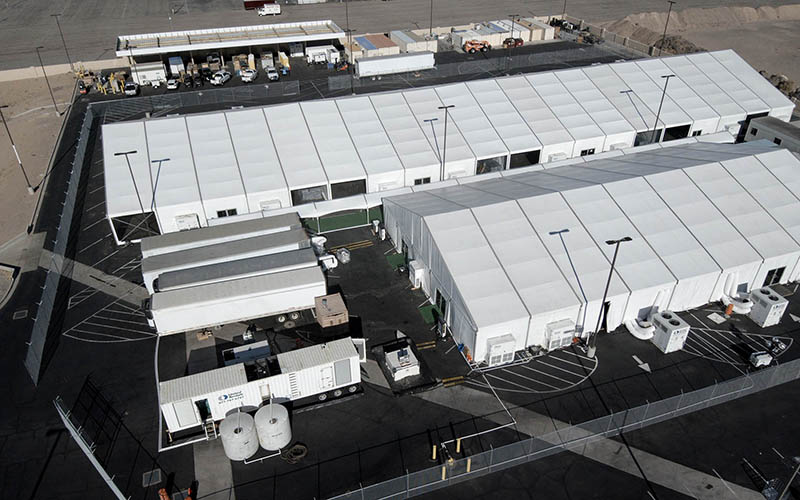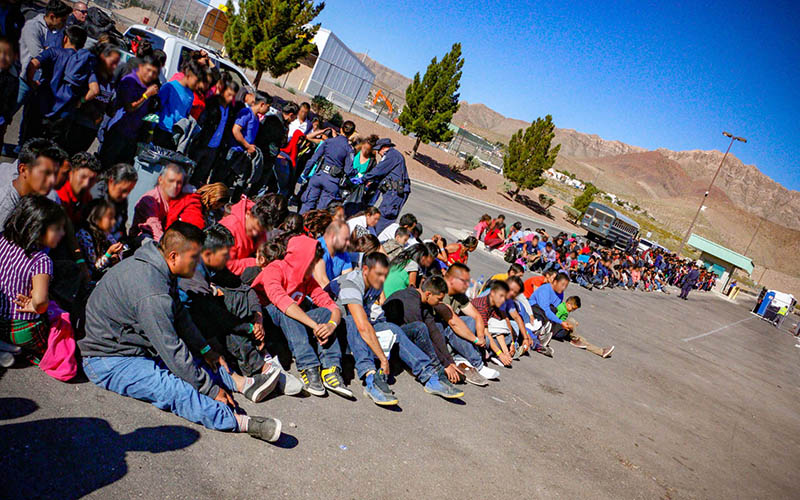WASHINGTON – Arizona Reps. Andy Biggs, R-Gilbert, and Ruben Gallego, D-Phoenix, don’t often find themselves on the same side of an issue.
But they were among the 102 House members who voted against an emergency border funding bill Thursday, a vote that scrambled the nearly party-line vote of just two days earlier on a Democrat-backed bill that would have included safeguards for immigrant families in detention.
Thursday’s 305-102 vote led to final approval of a bill that does not include many of those protections – but it does send $4.59 billion to border agencies just days before they warned they could run out of money to deal with the surge of migrants at the border.
Faced with that deadline, House Speaker Nancy Pelosi said she “reluctantly” put the amended bill on the floor and urged Democrats to support it Thursday “in order to get resources to the children fastest.”
The final vote included support from 129 Democrats and 176 Republicans, in what one expert called an “overwhelmingly bipartisan” vote to send emergency funding to the departments of Homeland Security, Health and Human Services and others.
But opponents included 95 Democrats, who decried the bill’s lack of safeguards, and seven Republicans, who said the funding was insufficient and did not meet President Donald Trump’s request to fund more border security.
“If you want to save lives, you must enforce your laws,” Biggs said in a tweet after the vote. He posted a 3-minute video that said the final bill cut funding the president wanted for enforcement by Border Patrol, Immigration and Customs Enforcement and other agencies.

Aerial view of a Customs and Border Protection facility in Yuma that will be used to process migrants who are apprehended, or turn themselves in, at the border. (Photo by Jerry Glaser/U.S. Customs and Border Protection)
But many Democrats were like Gallego, who said the bill does not do enough to “stand up against the human-rights abuses that the Trump administration is carrying out” against immigrants in detention.
“Any border spending bill passed by the House should include sensible safeguards to hold the Trump administration accountable and ensure that funding is spent – properly – on families and children,” Gallego said in a tweet after the vote. “This one doesn’t.”
Gallego and Biggs were joined by Arizona Reps. Raul Grijalva, D-Tucson, and Paul Gosar, R-Prescott, two more lawmakers on opposite ends of the political spectrum. But the rest of Arizona’s House delegation voted for the bill, as did the state’s two senators when the bill passed the Senate 84-8 on Wednesday.

Border Patrol agents apprehended 1,036 men, women and children trying to cross the border in El Paso, Texas, in May. (Photo by Agent Edward Butron/U.S. Customs and Border Protection)
The Senate bill directed more money to the Pentagon for border support, included funding for immigration judges and overtime pay for Homeland Security personnel. What it did not include were what Sen. Richard Shelby, R-Alabama, called “poison pills” relating to policy that lawmakers feared could kill the bill or lead to a presidential veto.
The Senate stripped out many of the provisions from the original House bill. Those included limits on the amount of time migrant children could be held in detention, higher standards for shelters, minimum standards for health and safety, and oversight provisions aimed at enhancing transparency and accountability.
The final bill directs $2.88 billion to HHS, $1.3 billion to Homeland Security agencies, $220 million to the Justice Department and $145 million to troops on the border. The White House had previously threatened to veto the funding bill, but Trump on Thursday tweeted congratulations to lawmakers for approving the funding.
The money is needed to handle what federal agencies have characterized as a “crisis” at the southern border.
Customs and Border Protection reported this month that 144,278 migrants were apprehended at the southern border in May, pushing the total for the first eight months of fiscal 2019 to 676,315, already more than the 521,090 for all of fiscal 2018. HHS, which detains children before releasing them to sponsors inside the U.S., said its monthly discharges of children have more than doubled, from 3,452 in October to 7,705 in April.
Matthew Sussis, a spokesman for the anti-immigration Center for Immigration Studies, said the aid package was crucial because HHS has been in desperate need of funding. That explains the overwhelmingly bipartisan vote, he said Friday.
“HHS is the agency that’s supposed to handle the children,” Sussis said. “The only reason they’ve been in Border Patrol care, where the conditions are worse, is because HHS just literally has no funding or space left.
“The funding is absolutely necessary to alleviate the conditions for the kids at the border right now,” he said.
Video by Amanda Slee/Cronkite News
AlertMe